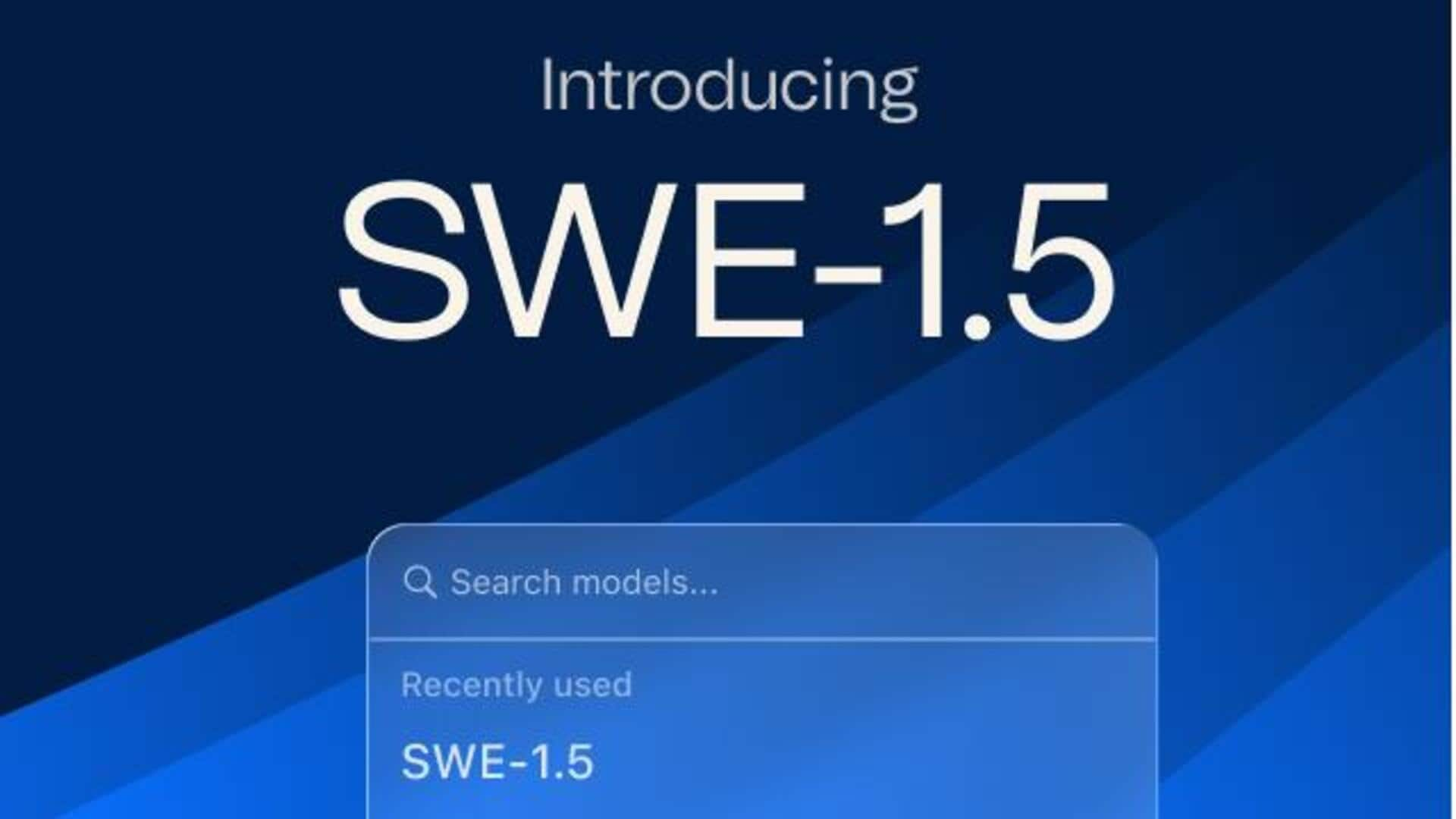
These US AI coding tools might be using Chinese models
What's the story
Two leading artificial intelligence (AI) coding tools developed by US companies in the last week are suspected of being based on Chinese models. The issue has raised ethical concerns over commercializing open models without giving credit to their original developers. Cognition AI's latest SWE-1.5 model, which recently achieved "near state of the art" coding performance and a record generation speed, is at the center of this controversy.
Model speculation
Cognition AI's SWE-1.5 built on open-source base model
Cognition AI, a San Francisco-based company valued at $10.2 billion, revealed in a blog post that SWE-1.5 was built "on top of a leading open-source base model." However, it didn't specify which one, leading to speculation that it could be Beijing-based Zhipu AI's GLM series of foundational models. The latter has also expressed its belief that SWE-1.5 used its latest flagship GLM-4.6 as the base model.
Tool analysis
Cursor launched tool with similar capabilities as SWE-1.5
Another US coding giant, Cursor, which recently tripled its valuation to $9.9 billion in six months, launched a new tool called Composer with similar capabilities as SWE-1.5. However, users soon found that the model generated reasoning traces in Chinese. This led some observers to speculate that its base model was also Chinese.
Licensing debate
Controversy surrounding base models
The controversy surrounding the base models of these two US firms has been complicated by the permissive open-source licenses of Chinese models. These licenses allow other companies to commercialize them without attribution. Florian Brand, a PhD student at Germany's Trier University and an expert on open models, emphasized that "the fine-tuning is the 'sauce'" in this context.
Company response
GLM-4.6 released under MIT open-source license
Zhipu AI, which released GLM-4.6 model under an MIT open-source license that allows free distribution and modification for commercial use, has seen a tenfold increase in paid overseas users over past two months. The company has also launched a coding subscription plan to tap into the global AI coding market. Responding to criticism of Cognition AI, Zhipu said it doesn't see this as a bad thing but rather emphasizes "the positive impact and value of open-source contributions to the ecosystem."